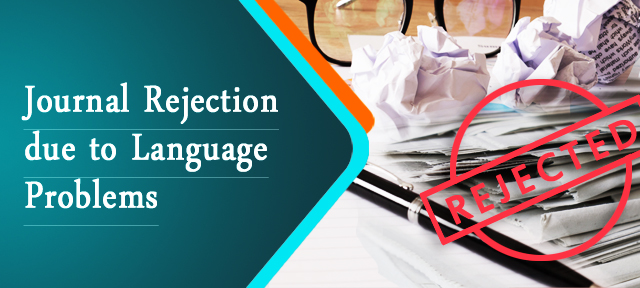Nobody enjoys being rejected. It hurts when your newest paper is rejected after review after you’ve put a lot of time and effort into it.

When a paper is submitted, an editor first evaluates it and performs a preliminary screening. Editors consider if the article is relevant to the journal’s scope to determine whether it will interest their readers. They look for technical faults, such as poor Language and whether the writers followed the journal’s structure and format rules.
A manuscript might be left for various reasons, ranging from simple mistakes and oversights to simply falling outside the publication’s scope. The paper’s Language plays a vital role, and it should be good quality for the article to be assessed. If not, Rejection is possible. It’s usually a good idea to have someone else look through your paper before submitting it.
Why is Language important in Research Paper?
- Rejection can happen due to a lot of jargon or bad English. Journals prefer submissions to be written in the most straightforward manner possible, ensuring an easy understanding of the paper.
- Factors such as poor syntax, spelling errors, and the absence of key text elements such as affiliations, author lists, tables, and figures sometimes cause publishers to dismiss papers without hesitation.
- Each journal has its writing requirements, including referencing style, typeface, font size, margin, and space. The common reason for publication rejection among early-career academics is failing to adhere to the journal’s writing standards.
- You make it more difficult for a journal to accept your paper if your material is difficult to read, lengthy, or requires multiple re-reads to be understood. Journals will reject a difficult document to understand. Good research will never compensate for language problems or style.
How to Avoid Rejection by correcting mistakes?
When writing, take your time and think about what you’re doing. Proofread your manuscript and have it proofread by your co-authors. Before submitting, have someone who hasn’t read the work – a colleague or a friend for grammatical and typographical problems.
- Make sure you read the guidelines for the publication to which you wish to submit your work.
- Break it down into smaller bits if you’re having trouble getting your message through. Short sentences might help you clarify your point by removing ambiguity and confusion.
- If you want to be clear about your topic, you may use simpler Language.
- Check and double-check before you start writing the note of hotspots – where are you most likely to become confused.
- Any remarks and acquisitions the editor makes regarding your writing style and Language are professional, not personal, and particularly not insulting. It should be noted.
Conclusion
Language quality is simple to improve yet sometimes disregarded. Reviewers frequently mention the necessity of providing a well-written text. One of the top strengths noticed by reviewers on scientific writing for publication in the Research in Medical Education conference proceedings was that they were effectively written. Having your work examined and edited can mean the difference between being rejected and successful.

